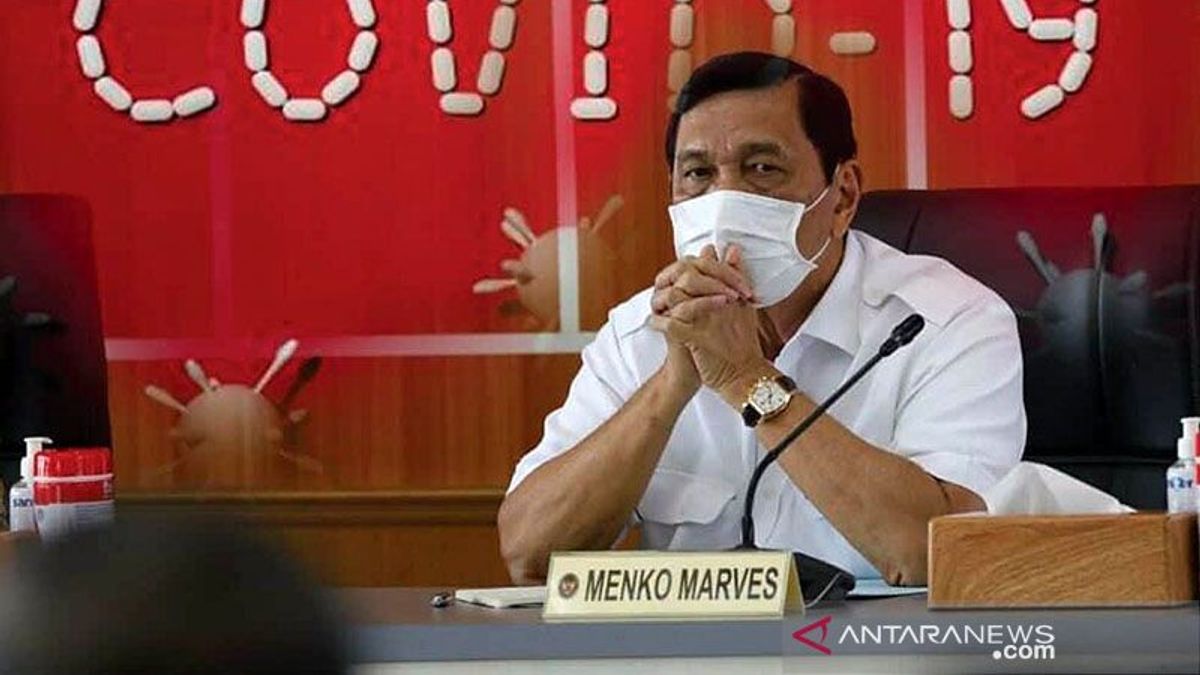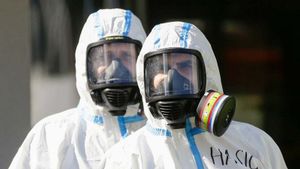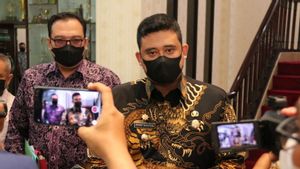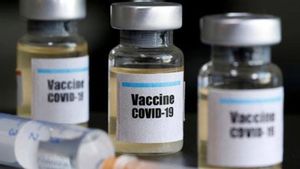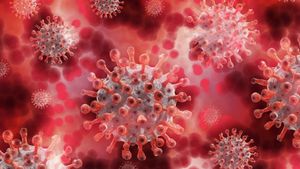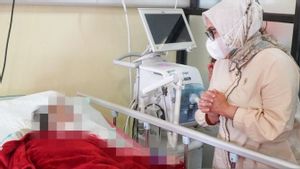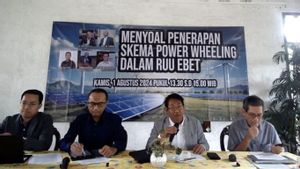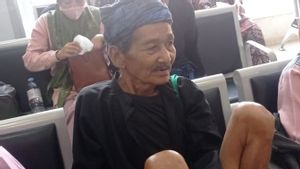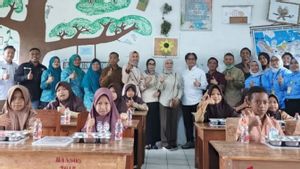JAKARTA - Coordinating Minister for Maritime Affairs and Investment (Menko Marves) Luhut Binsar Pandjaitan held a dialogue with epidemiologists, health experts, doctors, and social experts from various educational and research institutions in Indonesia. The goal is to get the best input in dealing with the Omicron variant that has entered Indonesia.
Those who attended were Minister of Health (Menkes) Budi G. Sadikin, Deputy Minister of Health (Wamenkes) Dante Saksono Harbuwono, and Coordinator of the Expert Team of the COVID-19 Task Force Prof. Wiku Adisasmito.
Luhut said that the focus of the discussion at the meeting was on handling when the spike occurred and after the spike in the Omicron virus.
"From various studies given to me by epidemiologist friends and doctors, we know that this Omicron variant spreads very quickly, but is less severe or not severe, although there are mortality rates in several countries but the numbers are quite low from this variant," he said in a written statement received by VOI, Saturday, December 15.
"However, we want this spike in confirmed cases to be reduced and what are our efforts after the Omicron spike," he continued.
Community Mobility Tightening
On the occasion, Minister of Health Budi Gunadi Sadikin said local transmission had occurred and DKI Jakarta became the cluster of transmission. Therefore, Budi suggested that there be coordination with local governments to discuss tightening community mobility.
In the last few weeks, it was discovered that the Omicron Variant in Indonesia came from Overseas Travelers (PPLN). So far, more than 500 positive confirmed cases of the Omicron variant have been detected in Indonesia, especially in the DKI Jakarta area and local transmission has occurred. Therefore, definite steps are needed regarding this matter.
"For this reason, we need to coordinate with local governments related to tightening mobility and also be accompanied by strengthening health protocols, booster vaccines, and health service facilities," said Budi.
Adding, Deputy Minister of Health Dante also said the need for re-administration of drug packages for patients with mild, moderate, and severe symptoms.
"We will prepare this drug package soon. The existence of this drug package is intended for people who are asymptomatic and have mild symptoms, this is intended to reduce the number of hospitalizations in various hospitals in Indonesia," said Dante.
7 Day Quarantine for PPLN
The Coordinator of the COVID-19 Task Force Expert Team, Wiku Adisasmito, also commented on the strategy to be used. The focus is related to tightening PPLN coming to Indonesia.
"For PPLNs, they will be quarantined for 7 days after they arrive. During this quarantine they will be tested by PCR and must be completely safe before entering the community," said Wiku.
During the discussion, an expert from the Eijkman Institute, Amin Soebandrio, also stated that Indonesia was entering a transition period in handling COVID-19 from the Delta variant to Omicron. According to him, monitoring at the molecular level needs to be sharpened considering that many things are not known about this variant.
SEE ALSO:
"Until now this Omicron is still being studied, the speed of transmission is fast. Although this is a different variant from Delta with a mortality rate that is still not available, we need to continue to anticipate various possibilities that can occur," he said.
The Government Must Keep Cases Rising
Epidemiologist from the Faculty of Medicine (FK) Gadjah Mada University (UGM) Hari Kusnanto from Epidemiologist from FK Universitas Airlangga (Unair) Windhu Purnomo said that the government should be able to flatten the curve or be able to keep the increase in cases from being too fast and too high so that the peak will occur in March. But with a lower number of cases.
However, according to Hari, controlling the transmission of the Omicron variant can be done if health protocols, mobility restrictions, vaccinations, and health care facilities are properly accommodated.
Other experts, from the Faculty of Medicine, University of Indonesia (UI) Erlina Burhan and Siti Setiati, reminded the public not to be lulled by the narrative that the Omicron variant is not as vicious as the previous variant.
Both of them also gave advice to Coordinating Minister Luhut and the ranks of ministers and the task force to make firm efforts to enforce health protocols and also carry out booster vaccines.
"This variant is still being researched, it is less severe than Delta, but it is still being researched. This could increase if we are not firm in reducing transmission or the transmission is high," said Doctor Siti.
Four Key Points To Do
In the discussion, UI sociologist Imam B. Prasodjo explained that the strategy that had been used so far in the social aspect was correct. According to him, there are four main points that the government needs to continue to do, namely strengthening coordination between government and security forces.
The second strategy is to encourage people to do public-pressure on others who violate the health protocol rules, and conduct campaigns to increase body resistance or body immunity in the family.
Then, continued Imam, the government should also try to empower local communities through education so that there is no generation lost.
The English, Chinese, Japanese, Arabic, and French versions are automatically generated by the AI. So there may still be inaccuracies in translating, please always see Indonesian as our main language. (system supported by DigitalSiber.id)
